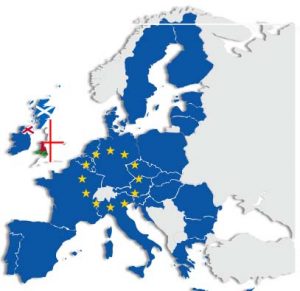To avoid further Brexit-like nightmares, the EU must provide a sound economic foundation for its citizens, especially for young people…

The decision of the United Kingdom to withdraw from the European Union reaffirms Albert Einstein’s despondent conclusion: “Two things are infinite: the universe and human stupidity; and I’m not sure about the universe.” At this point, there is little sense in seeking an explanation for the bravado of British voters. Instead we must now address the consequences. How can we minimize the negative impact for all sides while finding a new way forward?
The Brexit vote has unleashed euphoria among Europe’s populists and chauvinists. Boris Johnson’s triumph has bolstered the hopes of his spiritual kin, including Marine Le Pen and Geert Wilders – but also Iglesias, Stache, Gauland, and Höcke, to name but a few. It has also lent strength to the presidents at the periphery – Vladimir Putin and Recep Tayyip Erdogan. They all hope that Brexit will have a domino effect, ultimately ushering in the demise of the European Union. If that happens, the nationalists will once again be victorious. It was their visions of “a place in the sun,” “revenge for Sadowa” and pan-Slavism that repeatedly brought calamity to Europe in the twentieth century.
The EU must ensure this past is not repeated – and that means avoiding the pitfalls of nationalism. We must not succumb to the temptation to punish the United Kingdom – whether by imposing barriers on its trade with the continent, offering Scotland generous incentives for its own “Scotxit” from the United Kingdom, or attempting to isolate Britain within international institutions. This would be fatal, serving only to deepen the rift between the UK and the continent.
The economic impact alone will be a severe punishment. Major corporations are likely to pull up stakes and depart the country. Once the island tastes the fruit of its own nationalist egotism, there will be no avoiding its sour aftertaste. Europe must endeavor to keep the door open should the UK seek a return to the Community. Any finger-wagging on Europe’s part would only lend further strength to pro-Brexit forces, while leaving its critics in the lurch.
Instead, the European Union must focus its efforts on highlighting its strengths. The EU has brought us an unprecedented era of peace, prosperity and freedom. We must emphasize these achievements and reinforce their foundations. And we must ensure further progress in the integration of the EU and NATO. Taken together, these measures will help us safeguard peace – and in a welcome side-effect, help us maintain ties with Britain.
The European Union must also ensure that liberty and freedom of movement is preserved. At the same time, however, the EU must recognize that more work must be done to win the European public over to the benefits of these principles. A free Europe must remain a place of refuge for those who are politically persecuted, but the economic and social costs must also be shared fairly. To do otherwise would further erode public support for such policies, both within Europe and in Germany. The rise of the populist AfD party is but one vivid example.
Last but not least, Europe must improve economic prospects for ordinary people – and especially young people. Countries such as France, Spain and Italy are suffering from intolerable levels of youth unemployment, ranging from 25 to 50 percent. The European Central Bank’s monetary policy of “quantitative easing” is not a sufficient remedy, and in many ways is even counterproductive. People who set aside money for a rainy day must once again receive interest on their savings.
The central challenge now facing Europe is clear: it must launch a labor-intensive investment initiative that will provide a stable economic foundation for its citizens, and especially for its young people. It is this foundation that will ensure their support for a unified and shared European democracy.
